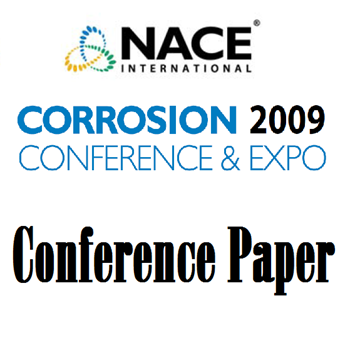Search
09295 Atmospheric Chamber Testing to Evalute Chloride Induced Stress Corrosion Cracking of Type 304, 304L, and 316L Stainless Steel
Also Purchased
10232 Atmospheric Salt Fog Testing to Evaluate Chloride Induced Stress Corrosion Cracking of Type 304, 304L, and 316L Stainless Steel
Product Number:
51300-10232-SG
ISBN:
10232 2010 CP
Publication Date:
2010
$20.00
09348 Prevention of External Chloride Stress Corrosion Cracking of Austenitic Stainless Steel with a
Product Number:
51300-09348-SG
ISBN:
09348 2009 CP
Publication Date:
2009
$20.00
08492 Effects of Temperature and Humidity on Atmospheric Stress Corrosion Cracking of 304 Stainless Steel
Product Number:
51300-08492-SG
ISBN:
08492 2008 CP
Publication Date:
2008
$20.00




